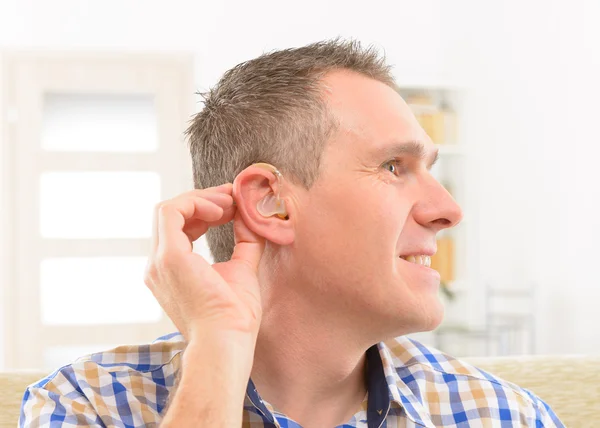
Wearing Hearing Aids Linked to Longer Life – Study Recent research has indeed shown a promising link between wearing hearing aids and living longer. With approximately 40 million Americans experiencing hearing loss, only one in ten actually utilize hearing aids, despite their potential benefits.
A study published in 2023 by The Lancet Healthy Longevity by Keck Medicine of USC found that adults with hearing loss who regularly used hearing aids had a 24% lower risk of mortality compared to those who never used them. This exciting finding suggests that hearing aids not only enhance sound perception but also play a crucial role in protecting overall health and longevity. This association remained even after accounting for factors like age, income, and health conditions.
Previous research has established the negative consequences of untreated hearing loss, including social isolation, depression, dementia, and even a shortened lifespan. However, the link between hearing aids and mortality remained largely unexplored until now. This study, according to lead researcher Dr. Janet Choi, is the most comprehensive analysis conducted in the US to date, examining the intricate relationship between hearing loss, hearing aid use, and mortality.
Choi and her team utilized data from the National Health and Nutrition Examination Survey, encompassing almost 10,000 adults who underwent audiometry assessments and reported their hearing aid usage. Their mortality status was monitored for an average of ten years following the evaluations.
Among the 1,863 identified individuals with hearing loss, only 237 were regular hearing aid users, wearing them at least once a week for five hours or half the time. The remaining 1,483 never used hearing aids. Interestingly, subjects who used them less frequently than once a month did not exhibit any life-extending benefits.
The remarkable 25% reduction in mortality risk for regular users held true regardless of various factors, including the severity of hearing loss, age, ethnicity, income, education, and medical history. This highlights the significant impact of consistent hearing aid use on lifespan, independent of individual demographics or health conditions.
While the study doesn’t delve into the exact mechanisms behind this phenomenon, Dr. Choi points to recent research connecting hearing aid use with lower levels of depression and dementia. She theorizes that improved hearing and social engagement can positively influence mental health and cognitive function, ultimately contributing to better overall health and potentially a longer life.
Dr. Choi hopes this study empowers more individuals to embrace hearing aids. Despite acknowledging barriers like cost, stigma, and difficulty finding suitable devices, she emphasizes the potential life-altering benefits they offer.
Sharing her personal experience with hearing loss, Dr. Choi reveals she didn’t wear a hearing aid until her 30s, despite having hearing loss in one ear since birth. Finding effective devices took her several years. This personal journey fueled her dedication to improving accessibility and understanding the impact of hearing aids.
Dr. Choi is currently developing an AI-driven database to personalize hearing aid recommendations based on individual needs. She is also advocating for larger research endeavors to further strengthen the connection between regular hearing aid use and reduced mortality, ultimately promoting better hearing care and healthier lives for all.
ALSO READ: Does tinnitus cause hearing loss in normal hearing individuals?